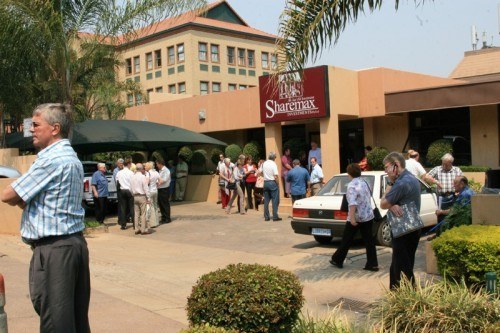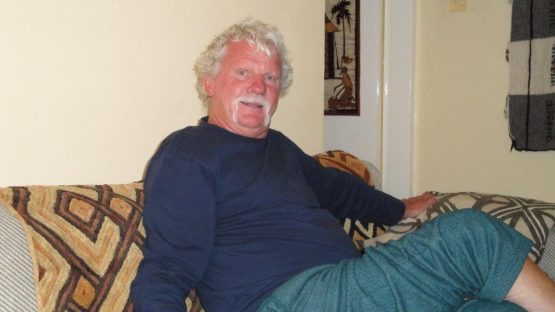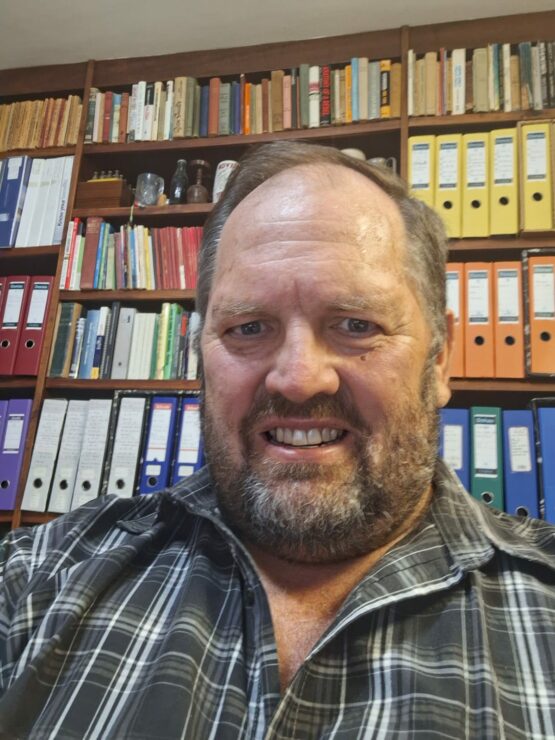- This topic is empty.
Viewing 1 post (of 1 total)
-
AuthorPosts
-
2024-04-12 at 11:27 #445963
 Nat QuinnKeymaster
Nat QuinnKeymasterDid regulators scuttle Sharemax and other property syndication schemes?
CIPC investigation has identified ‘legal inconsistencies, procedural anomalies and potential jurisdictional overreach’ by regulators.
 This is ‘the first step’ against the ‘corruption and fraud’ that led to property syndication companies being ‘captured by insolvency practitioners and their legal representatives’. Image: Moneyweb
This is ‘the first step’ against the ‘corruption and fraud’ that led to property syndication companies being ‘captured by insolvency practitioners and their legal representatives’. Image: MoneywebInvestors in numerous failed property syndication schemes may finally find out who was responsible for their loss of billions of rands in savings and pensions.
The Companies and Intellectual Property Commission (CIPC) is concluding a two-year investigation into the events and conduct of various regulators leading up to the failures of several property syndication schemes between 2010 and 2012, including Sharemax, the largest South African property syndication scheme at the time.
Several smaller ones, such as Realcor, Amatenda, and King Financial Services, were also included in the investigation, while the Highveld Syndication companies and Bluezone may be added later.
An estimated 40 000 investors invested over R11 billion in these schemes, and most lost virtually everything.
The CIPC compiled a preliminary report following the investigation that seems to have found some irregularities and possible criminal conduct, and has invited regulators and other parties to respond to the findings at a special hearing scheduled for 14 May.
Special hearing
Moneyweb is in posssession of a letter in which the CIPC states that its investigation identified “legal inconsistencies, procedural anomalies and potential jurisdictional over-reach” in the events leading to the schemes’ collapse.
The letter also states: “Areas which may require the consideration of criminal proceedings, stemming from the potential misrepresentation of facts identified in some of the evidence obtained thus far, will be referred to the relevant regulator(s), with the final report constituting the referral report.”
The CIPC has invited the South African Reserve Bank (Sarb), the Financial Sector Conduct Authority (FSCA), the Independent Regulatory Board for Auditors (Irba), and the South African Revenue Service (Sars) to respond to the findings.
It has also invited the National Prosecuting Authority (NPA), the Hawks, former directors of the schemes, and other interest parties to respond.
CIPC investigation
The CIPC’s investigation started in 2022 when it took steps against Nova, the company tasked with repaying investors after Sharemax collapsed, for failing to repay them within 10 years.
The investigation, under the leadership of senior investigator Cuma Zwane, was expanded to look at the reasons why Sharemax imploded in the first place. The scope extended again to examine why other syndication schemes had failed.
The letter states that its investigation included meetings with law enforcement agencies, the Office of the State Attorney, former directors, attorneys, auditors, CEOs, brokers and investors. There were also engagements with the founders and directors of the failed schemes.
Lungile Dukwana, chief strategy executive at the CIPC, said in response to questions that the preliminary report will not be made available to the media and that the media will not be allowed to attend the hearing.
Moneyweb has already submitted a request under the Promotion of Access to Information Act (PAIA) to access the document.

Bohuslav Kautsky committed suicide outside Sharemax’s head office in 2013. Image: Supplied
Role of the Reserve Bank
Although many regulators were involved with the property syndication industry, the Sarb’s conduct may be a key focus at the hearing.
At the time, the Sarb investigated the schemes and found their funding models contravened the Banks Act, a criminal offence. (The investigations into Sharemax and Realcor took more than three years.)
However, not a single former director or any individual has been prosecuted for these apparent criminal acts.
Last year, the NPA confirmed it would not prosecute anyone linked to Sharemax’s apparent contravention of the Banks Act.
The CIPC also exonerated Deonette de Ridder of any wrongdoing after a similar Sarb finding related to her syndication, Realcor.
The finding, leaked to the media, led to the company’s liquidation and investors losing around R1 billion.
The various schemes’ leaderships and activist Deon Pienaar have always believed that their schemes’ funding models adhered to the Companies Act and other relevant regulations and were not in contravention of the Banks Act.
No written reports
A vital aspect of Sarb’s conduct was that the bank never produced official written reports articulating the reasons for its findings. Therefore, the schemes could not take it on review.
However, the Sarb’s findings found their way into the media, and subsequent adverse reporting led to the scheme implosions.
Not one of the schemes took the Sarb’s decision on review, as the schemes’ failure made such legal action moot.
At the time, Advocate Michael Blackbeard was the deputy registrar of banks at the Sarb. He confirmed last year at an Irba hearing that the Sarb did not produce such a report related to Sharemax.
He stated that the final decision that Sharemax’s funding model was illegal was based on one legal opinion, operational reports, internal memos, and verbal discussions.
The Sarb also never approached a court for a declaratory order.

Deon Pienaar has always believed the schemes’ funding models adhered to the relevant regulations and were not in contravention of the Banks Act. Image: Supplied
Deon Pienaar
Pienaar, a former broker and activist who applied as far back as 2010 to have the Sarb’s decisions reviewed, participated in the CIPC’s investigation.
He said in a newsletter that the CIPC’s letter “is the first step in the state’s remedial process to address the corruption and fraud committed by some of their predecessors when they imploded and allowed the PSPC [Property Syndications Promotion Companies] industry to be captured by insolvency practitioners and their legal representatives”.
Property-syndication-newsletter-April-202442
source:Did regulators scuttle Sharemax and other property syndication schemes? – Moneyweb
-
AuthorPosts
Viewing 1 post (of 1 total)
- You must be logged in to reply to this topic.
